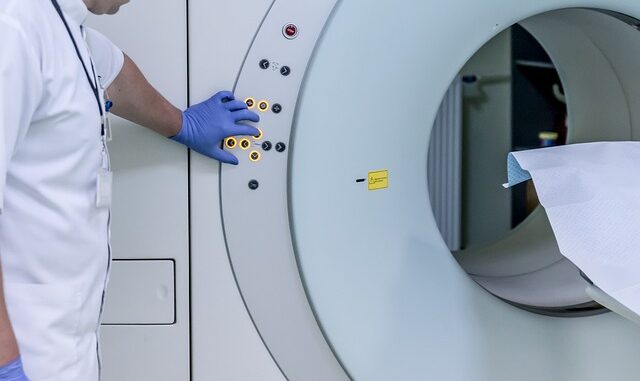
Summary
This article explores the groundbreaking development of AI in medical imaging, specifically its ability to detect bone fractures with greater accuracy than human clinicians. It discusses the benefits of AI-driven fracture detection, such as improved accuracy and efficiency, as well as its potential to address challenges like radiologist shortages and diagnostic errors. The article also highlights the importance of responsible implementation and ongoing research to maximize the positive impact of AI in healthcare.
** Main Story**
AI is making waves in healthcare, and one area where it’s really shining is medical imaging. You know, it’s getting to the point where AI can detect bone fractures even better than us humans. Can you believe it? This could totally change how we diagnose and treat fractures, benefiting both patients and the healthcare system as a whole.
Accuracy and Speed: The Future of Fracture Diagnosis
Think about it: AI algorithms are now capable of spotting fractures with incredible accuracy. They can even pick up on those super subtle, easily missed fractures that might escape the human eye. And it’s not just about accuracy, it’s about speed too! AI is streamlining the whole diagnostic process. Instead of poring over X-rays for hours, radiologists can focus on the trickier cases, thanks to AI pre-screening. This is going to cut down on patient waiting times and make sure folks get treated faster, especially when it’s an emergency.
Tackling Healthcare Head-On: Addressing Shortages and Diagnostic Slip-Ups
Let’s be honest, healthcare systems are facing some serious challenges these days. Radiologist shortages are a big problem in many countries, leading to overworked staff and delayed diagnoses. But, AI can help alleviate this pressure. AI systems can pre-screen images, flagging potential fractures for a radiologist to review. It is like having an extra pair of eyes, but much, much faster, it just takes some time to train the AI.
And we can’t forget about diagnostic errors, especially those missed fractures that can happen in busy emergency departments. Studies show that AI can help reduce those errors, leading to quicker and more appropriate care. Take the UK, for instance. NICE (National Institute for Health and Care Excellence) has given the thumbs up to several AI tools for fracture detection in urgent care settings. The claim is, that this tech is safe, reliable, and could even reduce the need for unnecessary X-rays. That’s a win-win, isn’t it?
Moving Forward: Responsible AI and Continued Learning
Look, the potential of AI in fracture detection is pretty clear, but we’ve got to be smart about how we roll it out. Healthcare pros need proper training so they understand what the AI can and can’t do, and how to interpret the results accurately. AI should be like a helpful assistant, not a replacement for human expertise. Radiologists and clinicians still have the final say, reviewing the AI’s findings and making the ultimate diagnosis. But without the radiologist shortage being a factor, there will be more time for them to be the expert diagnosticians they are. It’s a big quality of life improvement.
Plus, ongoing research is key. Scientists are constantly tweaking the algorithms, improving their accuracy and expanding their capabilities to detect a wider range of fractures across different patient groups. As AI tech gets better, we can expect even more advancements that will continue to reshape healthcare for the better. I remember reading about a study where AI was trained on a diverse set of X-rays, and the results were significantly more accurate than using AI trained on a limited dataset. It just goes to show how important it is to keep refining these tools.
So, yeah, AI in fracture detection is a real game-changer. Its accuracy and efficiency are going to revolutionize how we diagnose and treat bone injuries, addressing healthcare challenges and improving patient outcomes. And I think that, as long as we’re responsible with the implementation and keep pushing the research forward, AI can have a huge impact on healthcare in the years to come. It really is a testament to human ingenuity. What more can we discover, if we put our minds to it?


AI spotting subtle fractures better than humans? Does this mean insurance companies will soon require algorithms to sign off on extreme sports participation? Asking for a friend who skis… into trees sometimes.